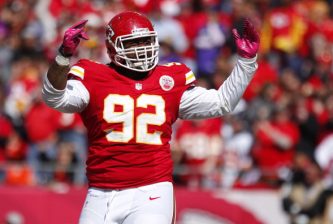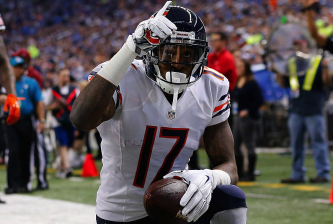Hall of Fame football player and veteran broadcaster Frank Gifford suffered from the degenerative brain disease known as CTE (Chronic Traumatic Encephalopathy), his family announced in a statement released on Wednesday.
The legendary New York Giants star and Monday Night Football analyst passed away in August at the age of 84. His death was attributed to natural causes, but Gifford’s loved ones suspected the effects of repeated head trauma during his playing days took their toll. Following his passing, the family agreed to have his brain studied and doctors diagnosed CTE.
Whoa. Frank Gifford had CTE. NBC just released this statement: pic.twitter.com/L8BXpemipR
— John Koblin (@koblin) November 25, 2015
“While Frank passed away from natural causes this past August at the age of 84, our suspicions that he was suffering from the debilitating effects of head trauma were confirmed when a team of pathologists recently diagnosed his condition as that of Chronic Traumatic Encephalopathy (CTE) — a progressive degenerative brain disease,” the family said in a statement.
“We decided to disclose our loved one’s condition to honor Frank’s legacy of promoting player safety dating back to his involvement in the formation of the NFL Players Association in the 1950s. His entire adult life Frank was a champion for others, but especially for those without the means or platform to be heard. He was a man who loved the National Football League until the day he passed, and one who recognized that it was — and will continue to be — the players who elevated this sport to its singular stature in American society.”
This revelation obviously adds a layer of tragedy to Gifford’s death, but also resonates loudly with many of the concerns and issues in today’s game, something that his family alluded to in its statement. With increased awareness of repeated head trauma and treatment of concussions in the NFL, yet another of the sport’s great players suffering from a debilitating disease that affected his quality of life in later years is a grave reminder of how violent football is and the physical sacrifices these athletes put themselves through to play the game at a high level.
But if any good can come from these tragedies, it’s emphasizing the need for greater player safety in terms of equipment, style of play and coaching. Gifford’s family obviously wanted to contribute to that effort, along with the former and current athletes who have agreed to donate their brains after death for study at institutions like Boston University in hopes of improving safety and the long-term health of the players we enjoy watching on Sundays.




